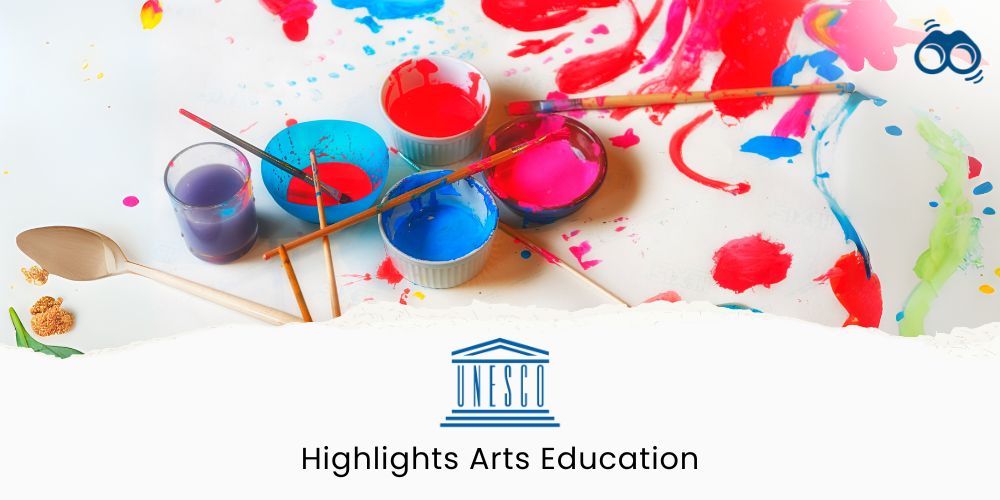UNESCO Report Calls for Stronger Rural-Urban Connections and Enhanced Teaching Capacity
UNESCO Adapts Global Framework to India’s Education Landscape in Latest Report
UNESCO’s Regional Office for South Asia released the sixth edition of Rhythms of Learning: The 2024 State of the Education Report for India, on December 22, 2024, focusing on culture and arts education. The report emphasizes the transformative power of culture and arts in fostering creativity, promoting equity, strengthening social cohesion, and advancing sustainable development. This edition is the first to adapt UNESCO’s Framework for Culture and Arts Education to India’s context. Tim Curtis, Director of UNESCO’s South Asia Regional Office, highlighted its role in promoting culture and arts education, offering valuable insights to foster creativity, critical thinking, and empathy, skills essential for addressing today's global challenges.
Senior officials from India’s education and culture ministries acknowledged the report’s alignment with national policies. Shri Sanjay Kumar, Secretary of the Department of School Education & Literacy, hoped the findings would inspire initiatives leveraging culture and arts. Ms. Lily Pandeya, Joint Secretary of the Ministry of Culture, emphasized that integrating culture and arts into education fosters values that are essential for holistic development.
Mr Anil Kumar Singhal, Additional Secretary in the Ministry of Education, linked the report’s findings to India’s NEP 2020, advocating for no rigid boundaries between arts and science or vocational and academic education. The report also aligns with the NCF-SE 2023, which includes arts education as a key curriculum component. Professor Dinesh Prasad Saklani, Director of NCERT, noted its alignment with global frameworks, including the one adopted at the 2024 Abu Dhabi World Conference on Culture and Arts Education.
Authored by the Srishti Manipal Institute, the report combines policy reviews, interviews, case studies, and surveys to highlight best practices in culture and arts education in India. It suggests strategies like Art-Integrated Learning (AIL) and preserving traditional knowledge, aligned with India’s NEP and NCF. The report concludes with ten recommendations, including creating a steering committee, strengthening rural-urban connections, enhancing teaching capacity, using technology for accessibility, and establishing centres of excellence, undergraduate programs, and a national repository for culture and arts education.
The launch event featured a live musical performance by the Naadvistaar Foundation, which underscored the report's central theme of integrating arts and education to foster creativity, cultural pride, and a sense of shared humanity. The 2024 UNESCO report emphasizes the transformative role of culture and arts education in fostering creativity, equity, and social cohesion. It offers valuable insights and recommendations to enhance arts integration in India’s education system, aligning with national policies and global frameworks.
Editor's Note:
The 2024 State of the Education Report for India by UNESCO highlights the important role of culture and arts education in creating a more creative, fair, and united society. This edition is the first to adapt UNESCO's global framework to India’s education system, offering valuable insights and practical suggestions to improve education in the country. With strong connections to national policies and international standards, the report encourages a more integrated and well-rounded approach to education.
Skoobuzz hopes that this will inspire positive change in India’s educational landscape and provide essential skills to students for their holistic development.














0 Comments (Please Login To Continue)